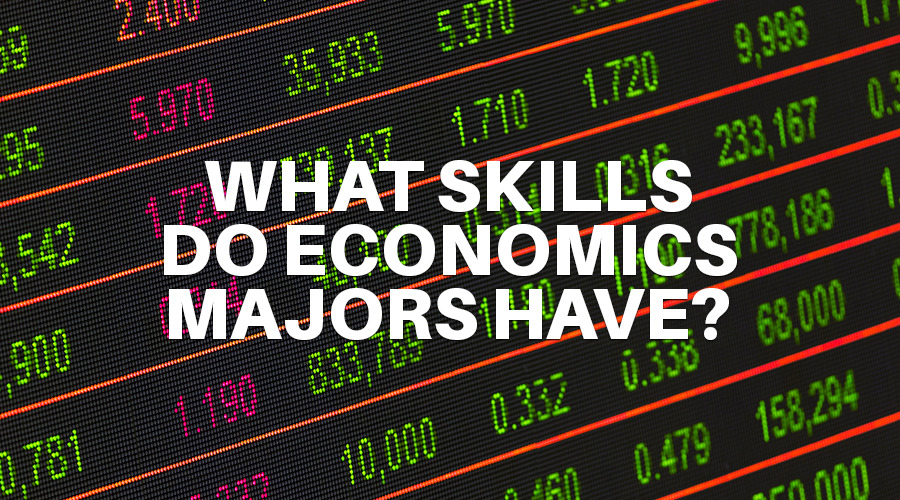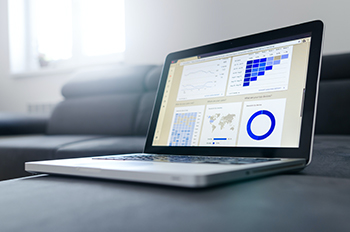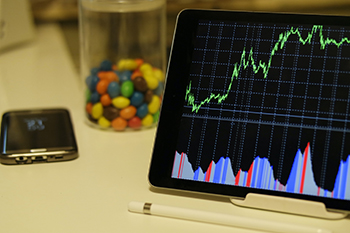What Skills Do Economics Majors Have?
Did you know that economics majors have a lot of skills that can be beneficial in the workforce? They learn how to think critically, analyze data, and make sound decisions. These skills are what sets economics majors apart from other students. In this blog post, we will discuss some of the skills that economics majors have and how they can be used in the real world!
What is an economics degree and what can you do with it?
An economics degree is an undergraduate degree that teaches students how to analyze and understand the production and distribution of resources, goods, and servicing. Economics majors learn how to think critically about economic issues and make sound decisions based on data. They also develop strong research skills that can be used in a variety of settings.
Studying economics goes back to the days of Adam Smith and his famous work, “The Wealth of Nations.” Today, economics is divided into two main branches: microeconomics and macroeconomics. Microeconomics focuses on individual behavior and the decisions made by households and businesses. Macroeconomics, on the other hand, looks at the big picture – things like inflation, unemployment, and economic growth.
The definition of economic data
In the business world, you study economics and business models to analyze what is going on in the industry to make better predictions. You also use economics when you are trying to figure out what is the best way to allocate resources. For example, should a company build a new factory or hire more workers?
In your personal life, you can use economic principles to decide how to spend your money. You have a good understanding of your current affairs and what is happening in the world. You can also use this knowledge to make investment decisions.
The true definition of data
The actual definition according to actual economists is:
“The study of how people use resources to produce goods and services and how they exchange those goods and services in markets.” In other words, economics is the study of what makes people tick. Why do they make the decisions they do? How does this impact what happens in the world around them?
As a professional economist, you use statistical data of the international trade patterns to help make decisions about what products should be imported or exported by your country. You also use this information to figure out what might happen to the economy in the future and how it could impact different industries.
This is all-important work that helps keep the world economy stable and growing.
So, what else do you need aside from professional qualifications for having studied economics? After further study and you achieve a bachelor’s degree, you’ll have a great set of talents that can be applied in several different industries.
So what skills do economics majors have?
When you study economics you develop all kinds of techniques and strategies and gain the ability to think laterally.
You also learn to:
– Understand and predict human behavior
– Build and analyze scenarios
– Find and interpret data
– Communicate complex ideas clearly
These are all highly sought-after abilities in a range of industries, so if you’re considering studying economics, rest assured that you’ll have plenty of options open to explore developing careers and interests. You’ll also have:
Analytical skills
This skill is the interpretation of data. It’s what economists do to make sense of what is happening in the economy and to try to predict what will happen next. Being analytical can be uncommon for most people, and being good at it can set you apart in any field. This talent is to identify what is important in a mass of information and what is not.
A career that uses this skill is a: Business Analyst and they make about $60,000 a year.
Critical thinking skills
This skill is the ability to analyze problems and make decisions based on evidence and reasoning. It’s what economists do to assess economic policy proposals and determine their likely effectiveness. Being able to think critically can be useful in any career, as it allows you to evaluate information and make sound decisions.
A career that uses this skill is a: Financial Analyst and they make about $85,000 a year.
Quantitative skills
This skill is perfect for those who love working with numbers and solving complex problems. As an economist, you’ll use quantitative skills to analyze and build models to predict economic trends. The government uses statistics found with this skill to set banking interest rates, for example.
A career that uses this skill is a: Database Administrator and they make about $80,000 a year.
Writing and communication skills
You’re probably used to writing papers in college, but did you know that economists use writing and communication skills in their careers? Economists often write research reports and policy briefs that explain their findings to policymakers, business leaders, and the general public.
A career that uses this skill is a: Economic Analyst and they make about $85,000 a year.
Problem-solving skills
Problem-solving has to do with the ability to identify a problem and figure out the best way to solve it. In many cases, economists use mathematical functions when presenting findings to solve problems. Employers look for management to have this essential skill as it relates to analyzing and finding solutions to difficult issues that may arise.
A career that uses this skill is an: Actuary and they make about $102,880 a year.
Teamwork skills
Having teamwork skills means you can focus on the politics that jobs demand, usually in finance departments or marketing, even management. The ability to work in a team is important because employers look for people who can cooperate, communicate, and contribute to the workplace.
A career that uses this skill is a: Human Resources Manager and they make about $113,300 a year.
Most Recent Analyst Career Postings:
Numbers and theories make up everything
As you can see, there are many skills that economics majors have that can lead to a successful life in government sectors, a department at universities, or even law firms. The skills that you learn from studying economics are not just about numbers and theories, but they are also about people and how to interact with them.
The benefits of data analysis for businesses
Statistics are used in the business world as well as in banking, finance, and government. Many businesses use statistical interpretations to make decisions about what products to sell, how to price those products, and how to allocate resources.
Some benefits of analysis include:
– Allocating resources: This can help you understand where your resources are best spent.
– Making decisions about what products to sell: By understanding what customers want and need, businesses can make better decisions about what products to sell.
– Pricing products: This can help businesses understand what price points are most likely to result in sales.
Statistical analysis can also be used to evaluate customer satisfaction or figure out which marketing campaigns are most effective. In general, businesses use statistical analysis to understand what is happening in their industry and make better decisions.
The analysis is a lot like advice and some would say that a job with an economics degree is a life about giving advice.
Advice for new economics graduates
Economics graduates that are interested in government-related jobs or want to gain knowledge of essential finance should consider doing so during their penultimate year. This is the time when most graduate programs and internships are available. Additionally, during your final year, it is important to focus on your degree and get good grades.
After you have graduated, there are a few things you can do to make yourself more attractive to employers.
Jobs in high demand that are related to business firms or government management are competitive and students that completed their courses after they graduate from university want to stand out among the rest.
Economics graduates should explore careers before taking on the rest of the world
Some economists get their start by working in the department at the university or getting involved with a community organization. This can be a great way to get your foot in the door and learn more about what you want to do.
Gain experience in business
Another route that many economists take is to go into banking or finance.
There are many different types of jobs in this field, so it is important to do your research and find one that best suits your skills and graduate with an economics degree that highlights not just one course but all the courses you took to get your degree. Each course is integral to learning from the university about the business before you graduate. Real business advice is something that’s given to you by professors, not what’s in the business section of the newspaper.
See what else is going on with business careers!
We hope you enjoyed finding out about the skills and careers that graduates with business economics degrees possess and if you are thinking about other jobs that might be related to statistics but are also in high demand for graduates from universities then check out our latest blog here! Remember to leave a comment below and thank you for reading!




